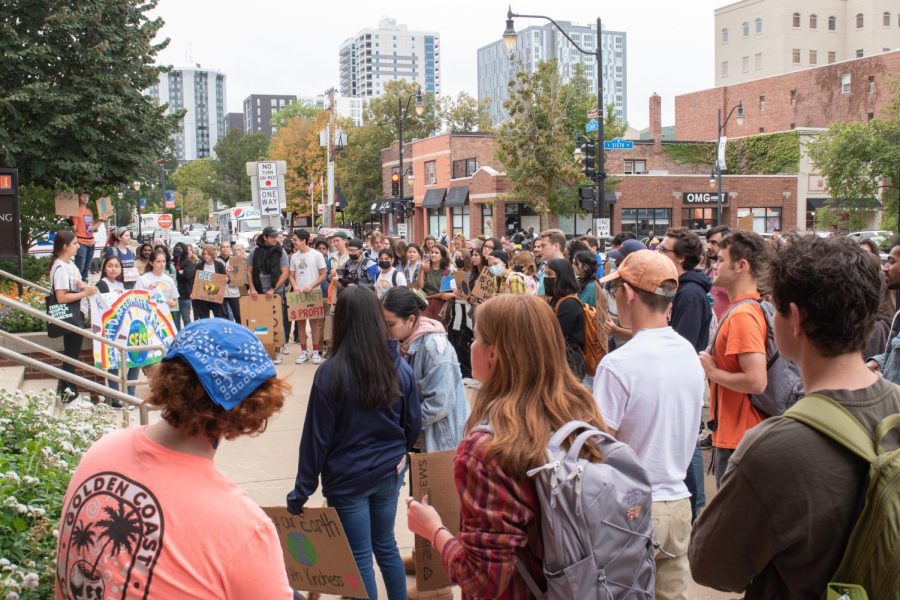Students protest in climate strike demanding UI fossil fuel divestment
Students gather outside the Swanlund Administration Building for the Students for Environmental Change climate strike on Friday. The group began their strike at the Alma Mater statue and walked around the campus with students speaking throughout the march.
September 26, 2022
Organized by the Students with Environmental Concerns RSO, students converged by Alma Mater at noon on Wednesday as part of a climate strike that aimed to draw attention to the climate crisis and demand that the University divest from its economic holdings in fossil fuels and nonrenewable energy.
“The University of Illinois has a fifth of a billion dollars invested in companies that profit from the extraction, transportation and refinement of natural gas, petroleum or coal,” said Gabriel Kosmacher, senior in LAS and president of SECS. “Our demand is that the University of Illinois fully divest from these such companies by the year 2025.”
Kosmacher also said that students voted to set that goal in a referendum in 2019.
“We’re out here … to make sure the powers that be keep their word,” Kosmacher said.
Kosmacher said that SECS also hosts demonstrations during Earth Day and organizes small campaigns for divestment from fossil fuels throughout the year.
Get The Daily Illini in your inbox!
The goal of divestment, according to Kosmacher, is also present in the University’s own Illinois Climate Action Plan, or iCAP. iCAP is a plan outlining the University’s actions in moving toward a sustainable and cleaner energy infrastructure that is rewritten every five years.
Kosmacher said he was happy that iCAP is such a “collaborative document between faculty and students” and said that the objectives of the document, which are meant to be accomplished by 2050, are achievable.
Isabella Strohmeier, sophomore in LAS and eco-socialist working group lead for the Young Democratic Socialists of America at the University, said a major flaw of the University’s plan is that the document is nonbinding.
“What we’re saying is that we don’t think anything’s gonna happen,” Strohmeier said in reference to iCAP. “It’s just a bunch of words that keep getting pushed back … We don’t think we have until 2050.”
James Buckley, sophomore in LAS who was present at the protest, said one of the goals of attending was to “get the University to take notice that the student body actually cares about this idea and wants things to change here.”
“We want to actually have an earth that’s going to be really good for the future generation as well as just us,” Buckley said.








